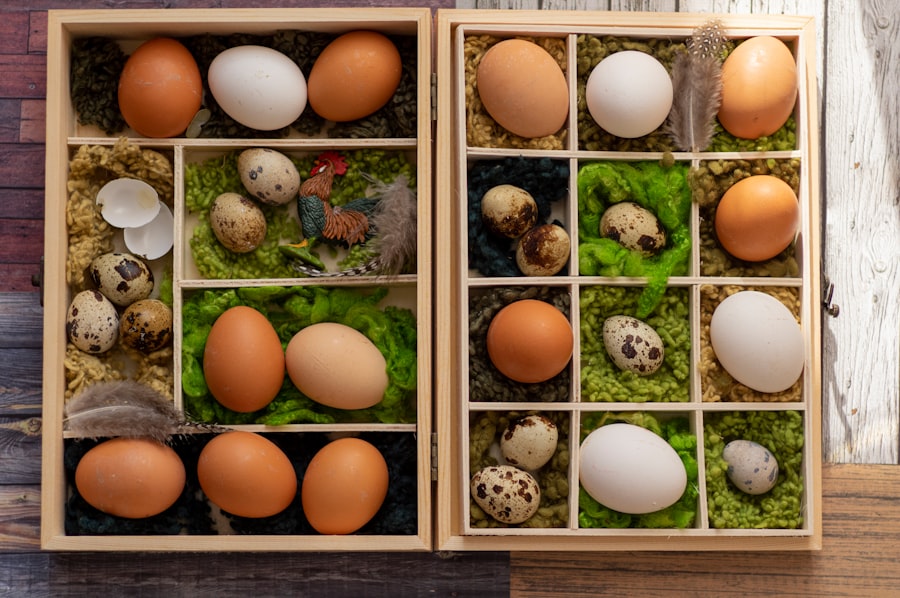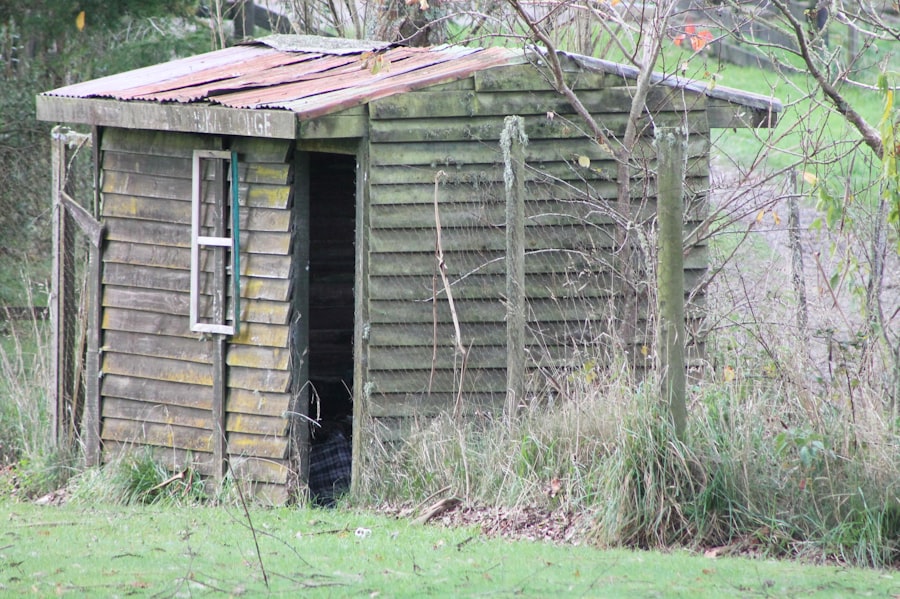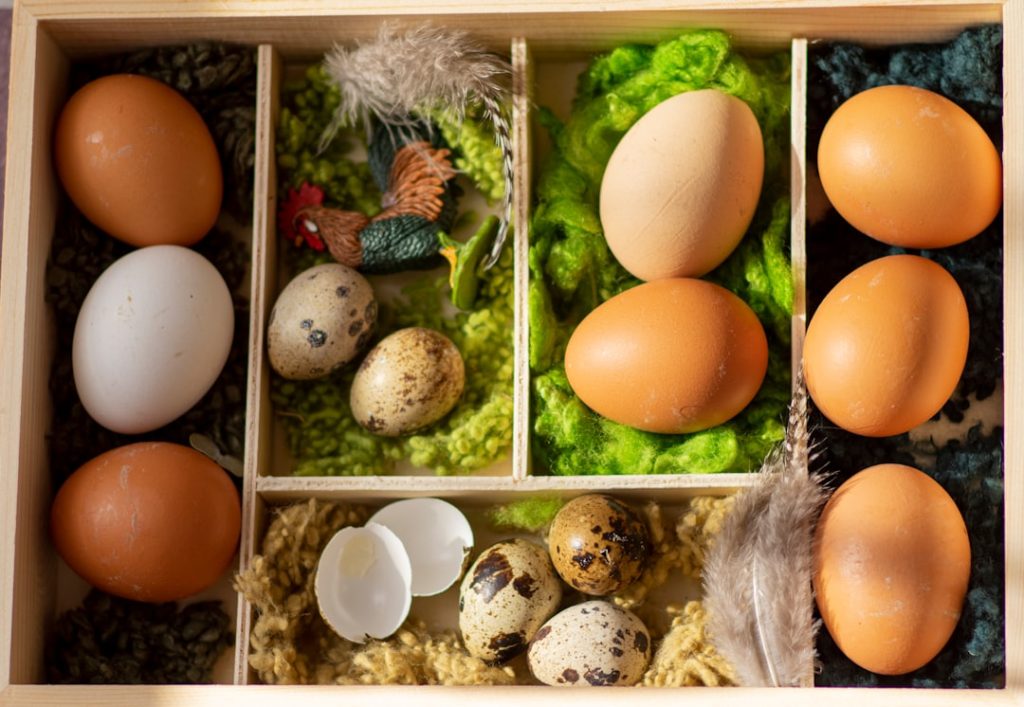When selecting chicken breeds for a backyard flock, several factors should be considered. Climate is a crucial consideration, as some breeds are better adapted to cold weather, while others thrive in warmer conditions. The intended purpose of the flock is also important; certain breeds are known for their egg-laying capabilities, while others are valued for meat production.
Temperament is another significant factor, with some breeds being more docile and others more aggressive. Space availability is a key consideration. Breeds suited for confinement are ideal for small backyards, while free-ranging breeds are better for larger properties.
Some breeds integrate well in mixed flocks with other poultry types, while others perform better in single-breed flocks. Evaluating these factors helps in selecting the most appropriate breed for specific situations and goals in backyard chicken keeping.
Table of Contents
- 1 Coop and Run Design
- 2 Feeding and Watering
- 3 Health and Hygiene
- 4 Handling and Socializing
- 5 City Regulations and Permits
- 6 Predation and Security
- 7 FAQs
- 7.1 What are the benefits of keeping chickens in a small backyard?
- 7.2 How much space do chickens need in a small backyard?
- 7.3 What kind of coop is suitable for a small backyard?
- 7.4 What do chickens eat and how can I provide for them in a small backyard?
- 7.5 How do I keep chickens safe in a small backyard?
- 7.6 Are there any local regulations or restrictions for keeping chickens in a small backyard?
Key Takeaways
- Consider the climate, space, and purpose of raising chickens when choosing the right breed for your coop
- Design a coop and run that provides enough space for the number of chickens you plan to raise and includes proper ventilation and predator-proofing
- Provide a balanced diet for your chickens, including a mix of commercial feed, kitchen scraps, and access to fresh water at all times
- Regularly clean and maintain the coop to prevent the spread of diseases and parasites among your flock
- Handle and socialize your chickens regularly to ensure they are comfortable around humans and other animals, and check local regulations and permits before raising chickens in a city area. Install proper security measures to protect your chickens from predators such as raccoons, foxes, and birds of prey.
Coop and Run Design
Space Requirements
A good rule of thumb is to allow at least 2-3 square feet of space per chicken inside the coop, and 8-10 square feet per chicken in the outdoor run. This will give your chickens plenty of room to move around and engage in natural behaviors like scratching and dust bathing.
Ventilation and Materials
Additionally, you’ll want to make sure that your coop is well-ventilated to prevent moisture buildup and ammonia levels from becoming too high. In addition to size, you’ll also want to consider the materials you use to build your coop and run. It’s important to use sturdy, predator-proof materials to keep your chickens safe from predators like raccoons, foxes, and hawks.
Layout and Features
Finally, it’s important to consider the layout of your coop and run. You’ll want to provide plenty of roosting space inside the coop, as well as nesting boxes for your hens to lay their eggs. In the outdoor run, you may want to include features like perches and dust bathing areas to keep your chickens entertained and engaged.
Feeding and Watering

Proper feeding and watering are essential for keeping your backyard flock healthy and happy. When it comes to feeding, it’s important to provide your chickens with a balanced diet that meets all of their nutritional needs. This typically includes a commercial layer feed for hens that are laying eggs, as well as supplemental treats like fruits, vegetables, and grains.
It’s important to avoid feeding your chickens foods that are toxic to them, such as chocolate, avocado, and onions. Additionally, you’ll want to make sure that your chickens have access to clean, fresh water at all times. This may require providing multiple water sources if you have a large flock or if your coop and run are spread out over a large area.
In addition to providing food and water, it’s important to consider how you will store and dispense these items in your coop and run. You’ll want to use feeders and waterers that are easy to clean and refill, as well as ones that are designed to prevent spillage and waste. It’s also important to consider the placement of these items within the coop and run to ensure that all of your chickens have access to them.
By carefully considering the feeding and watering needs of your flock, you can help ensure that they stay healthy and happy.
Health and Hygiene
Maintaining the health and hygiene of your backyard flock is essential for preventing disease and ensuring that your chickens live long, happy lives. One of the most important aspects of maintaining good health is keeping your coop and run clean. This includes regularly removing soiled bedding from the coop, as well as cleaning and disinfecting feeders, waterers, and other equipment.
It’s also important to regularly inspect your chickens for signs of illness or injury, as early detection can be crucial for successful treatment. In addition to cleanliness, it’s important to provide your chickens with regular access to dust bathing areas. Dust bathing is a natural behavior for chickens that helps them keep their feathers clean and free from parasites.
You can provide dust bathing areas in the outdoor run by creating shallow depressions filled with sand or fine dirt. Additionally, it’s important to provide regular access to fresh air and sunlight, as these are important for maintaining good overall health. Finally, it’s important to have a plan in place for dealing with any health issues that may arise in your flock.
This may include having a relationship with a local veterinarian who is experienced in poultry care, as well as having a basic understanding of common chicken health issues and how to treat them. By taking proactive steps to maintain the health and hygiene of your flock, you can help ensure that they live long, healthy lives.
Proper handling and socializing are important for keeping your backyard flock tame and friendly. When handling your chickens, it’s important to be gentle and calm in order to avoid causing unnecessary stress or injury. It’s also important to handle your chickens regularly from a young age in order to help them become accustomed to human interaction.
This can help make them more friendly and easier to manage as they grow older. In addition to handling, it’s important to provide opportunities for socializing within the flock itself. Chickens are social animals that thrive on interaction with their flock mates.
Providing plenty of roosting space inside the coop, as well as perches and other features in the outdoor run, can help encourage positive social interactions among your chickens. Additionally, providing plenty of space for your chickens to roam and engage in natural behaviors like scratching and dust bathing can help keep them mentally stimulated and content. Finally, it’s important to consider how you will introduce new chickens into an existing flock.
This can be a delicate process that requires careful monitoring and management in order to prevent aggression or injury. By taking proactive steps to handle and socialize your flock, you can help ensure that they are happy, healthy, and well-adjusted.
City Regulations and Permits

City Regulations and Permits
Many cities have specific ordinances governing the keeping of poultry within city limits. These rules may cover aspects such as coop size and placement, noise levels, and waste management. Additionally, some cities may require permits or licenses to keep chickens legally.
Neighborhood Covenants and Homeowners’ Association Rules
It’s also crucial to consider any neighborhood covenants or homeowners’ association rules that may apply to keeping chickens. These rules may impose additional restrictions on coop design or the number of chickens allowed per property.
Being a Good Neighbor
To maintain a positive relationship with your neighbors, it’s vital to be a responsible chicken keeper. This includes taking steps to minimize noise and odor from your coop and run, as well as addressing any concerns or complaints from neighbors promptly. By following all applicable regulations and permits, you can ensure that your backyard flock is a welcome addition to your community.
Predation and Security
Protecting your backyard flock from predators is essential for keeping them safe and healthy. Common predators of chickens include raccoons, foxes, hawks, and even domestic dogs or cats. In order to protect your flock from these threats, it’s important to take proactive steps to secure your coop and run.
One of the most important aspects of predator protection is ensuring that your coop is secure from all angles. This includes using sturdy materials like hardware cloth or welded wire mesh on all openings, including windows, doors, and vents. Additionally, it’s important to bury wire mesh around the perimeter of the coop to prevent predators from digging underneath.
In the outdoor run, it’s important to use a secure roof or netting to prevent aerial predators from swooping in from above. In addition to securing the physical structure of your coop and run, it’s also important to consider other security measures like motion-activated lights or alarms. These can help deter predators from approaching your coop at night when chickens are most vulnerable.
Finally, it’s important to be vigilant about monitoring for signs of predator activity around your property and taking proactive steps to address any potential threats before they become a problem. In conclusion, keeping backyard chickens can be a rewarding experience that provides fresh eggs, natural pest control, and entertainment for the whole family. By carefully considering factors like breed selection, coop design, feeding and watering needs, health and hygiene practices, handling and socializing techniques, city regulations and permits, as well as predation and security measures, you can help ensure that your backyard flock thrives in its urban or suburban environment.
With proper planning and management, keeping backyard chickens can be a fun and fulfilling hobby that brings joy and satisfaction for years to come.
If you’re looking for more information on how to keep chickens in a small backyard, you might want to check out this article on how big a coop needs to be for a chicken. It provides valuable insights into the space requirements for keeping chickens and offers practical tips for creating a suitable living environment for your feathered friends.
FAQs
What are the benefits of keeping chickens in a small backyard?
Keeping chickens in a small backyard can provide a sustainable source of fresh eggs, natural pest control, and fertilizer for the garden. It also offers the opportunity to connect with nature and teach responsibility to children.
How much space do chickens need in a small backyard?
Chickens require a minimum of 2-3 square feet of space per bird in a coop, and at least 8-10 square feet of outdoor space per bird for foraging and exercise. It’s important to provide enough space for the chickens to move around comfortably.
What kind of coop is suitable for a small backyard?
A small backyard coop should be well-ventilated, predator-proof, and provide nesting boxes for the hens to lay eggs. It should also have a roosting area for the chickens to perch at night. There are many compact and space-saving coop designs available for small backyards.
What do chickens eat and how can I provide for them in a small backyard?
Chickens require a balanced diet of layer feed, supplemented with kitchen scraps, grains, and greens. In a small backyard, you can provide for them by using hanging feeders and waterers to save space, and by allowing them to forage for insects and plants.
How do I keep chickens safe in a small backyard?
To keep chickens safe in a small backyard, it’s important to secure the coop and outdoor area with sturdy fencing to prevent predators from getting in. Additionally, providing a secure coop with a locking door can keep chickens safe at night.
Are there any local regulations or restrictions for keeping chickens in a small backyard?
Many cities and towns have regulations regarding the keeping of chickens, including limits on the number of birds allowed, coop size and placement, and noise restrictions. It’s important to check with local authorities before keeping chickens in a small backyard.
Meet Walter, the feathered-friend fanatic of Florida! Nestled in the sunshine state, Walter struts through life with his feathered companions, clucking his way to happiness. With a coop that’s fancier than a five-star hotel, he’s the Don Juan of the chicken world. When he’s not teaching his hens to do the cha-cha, you’ll find him in a heated debate with his prized rooster, Sir Clucks-a-Lot. Walter’s poultry passion is no yolk; he’s the sunny-side-up guy you never knew you needed in your flock of friends!







